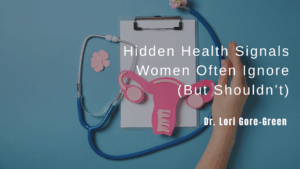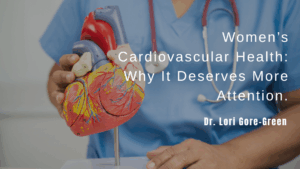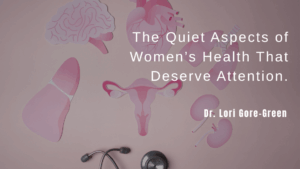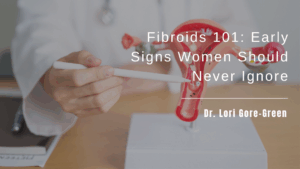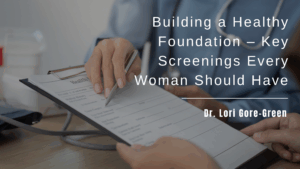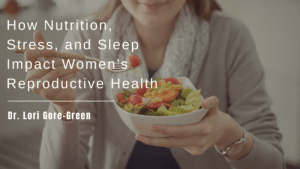Preventive healthcare is one of the most powerful tools women have to protect their long-term well-being. Yet, health screenings are often delayed or skipped due to busy schedules, fear, cost concerns, or the assumption that “feeling fine” means everything is fine. In reality, many serious conditions develop silently, showing symptoms only when they become harder to treat.
Health screenings aren’t just about finding illness—they’re about staying ahead of it. They help detect potential problems early, when treatment is more effective and less invasive. No matter your age or lifestyle, prioritizing regular screenings is an investment in your future health. Here are the essential health screenings every woman should make a priority, and why they matter.
Routine Screenings That Support Overall Health
Some health checks form the foundation of preventive care and should be part of every woman’s routine, regardless of age.
Blood pressure screening is one of the simplest yet most important tests. High blood pressure often has no symptoms but significantly increases the risk of heart disease and stroke. Regular monitoring helps catch problems early and allows for lifestyle changes or treatment before complications develop.
Cholesterol screening is another key test. Elevated cholesterol levels can quietly damage blood vessels over time, increasing cardiovascular risk. Women should begin regular cholesterol checks in early adulthood, especially if there’s a family history of heart disease, diabetes, or obesity.
Blood sugar testing helps identify prediabetes or diabetes before symptoms appear. With rising rates of insulin resistance among women, early detection can prevent long-term complications affecting the heart, kidneys, nerves, and vision.
Body mass index (BMI) and waist circumference measurements also provide valuable insights. While they don’t tell the whole story, sudden or unexplained changes can signal metabolic, hormonal, or lifestyle-related concerns that deserve further attention.
Screenings Focused on Women’s Reproductive and Hormonal Health
Women’s reproductive health screenings play a critical role not only in fertility but in overall physical and hormonal balance.
Pap smears and HPV testing are essential for detecting cervical cancer and precancerous changes. Cervical cancer is highly preventable when caught early, yet many women delay screenings due to discomfort or misconceptions. Regular testing significantly reduces risk and saves lives.
Breast health screenings are equally vital. Clinical breast exams and mammograms help detect breast cancer in its earliest stages. While self-exams are helpful for noticing changes, imaging screenings remain the gold standard for early detection, especially as risk increases with age.
Sexually transmitted infection (STI) screenings are important for sexually active women, even in long-term relationships. Many STIs cause no immediate symptoms but can lead to infertility, chronic pain, or complications if left untreated.
Hormonal evaluations may be recommended when women experience irregular periods, severe menstrual symptoms, unexplained weight changes, hair loss, acne, or fertility challenges. Hormonal imbalances can affect mood, metabolism, bone health, and cardiovascular risk, making early assessment essential.
Age-Specific Screenings That Protect Long-Term Wellness
As women age, screening needs evolve to address shifting risks and physiological changes.
Bone density testing becomes increasingly important, particularly for women over 50 or those with risk factors such as early menopause, low body weight, or family history of osteoporosis. Bone loss often occurs without symptoms until a fracture happens, making early detection crucial.
Colorectal cancer screening is another essential test that many women overlook. Colon cancer is highly treatable when detected early, and screening can identify precancerous polyps before they become dangerous.
Skin cancer screenings are often underestimated. Women should have regular skin checks, especially if they have a history of sun exposure, tanning bed use, or changes in moles or skin texture.
Eye exams and hearing tests also deserve attention as part of preventive care. Vision and hearing changes can affect quality of life and may signal underlying health issues such as diabetes or neurological conditions.
Mental health screenings are just as important as physical ones. Assessments for depression, anxiety, and stress-related disorders help identify emotional struggles early and reduce the stigma around seeking support.
Making Preventive Care a Priority
The biggest barrier to regular screenings is often not access—but mindset. Many women are caregivers, professionals, and problem-solvers who place their own health last. However, prevention is not a luxury; it is a necessity.
Keeping a personal health calendar, asking questions during medical appointments, and advocating for appropriate tests can make preventive care more manageable. If something feels off—even if a test comes back normal—trusting your instincts and seeking follow-up care matters.
Health screenings empower women with knowledge. They provide clarity, reassurance, and the opportunity to take control before problems escalate. Prioritizing these screenings isn’t about expecting the worst—it’s about choosing longevity, vitality, and peace of mind.

